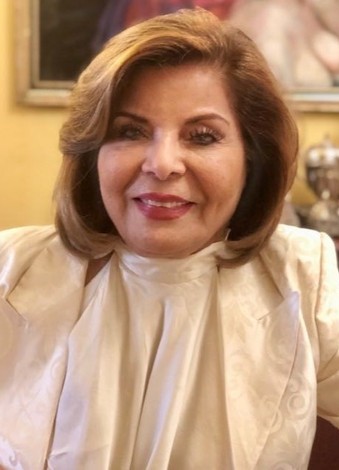
Mehri Madarshahi
International Fellow, Center for China and Globalization (CCG)
Vice Chairman, Asia Pacific Consulting Group
Visiting Professor, Guangdong University of Foreign Studies
Honorary Professor, Shandong University
Honorary Professor, Institute of Public Policy, South China University of Technology
Navigating a Divided World: Emerging Global South and the future of Multilateralism
The global landscape has recently grown increasingly fragmented, with geopolitical rivalries, trade disputes, and the weakening of traditional alliances disrupting the once-stable foundation of international order and economic cooperations. Multilateralism is under mounting pressure, as institutions face reinterpretation and renegotiation amid shifting power dynamics. An inward-turning United States, a militarizing Europe, and stagnation in Japan and South Korea have opened the door for new economic and diplomatic leadership, particularly from parts of the Global South. Emerging powers such as China, India, Indonesia, and Mexico are asserting themselves more confidently in global affairs. China, in particular, has used U.S. withdrawal from agreements like the Paris Climate Accord to position itself as a leader in climate diplomacy and green energy innovation. These countries are leveraging trade, infrastructure investments, and climate initiatives to redefine their roles—not just as participants in, but shapers of, global governance.
At the same time, the rise of nationalist and populist movements across both developed and developing nations is complicating efforts to foster global collaboration. Protectionist sentiments—rooted in social alienation and economic displacement from technological change—have weakened support for internationalism and trade openness. Yet, despite these challenges, there remains a path forward. The Global South is playing a more active role in advocating for equitable development, climate justice, and technological cooperation, often prioritizing shared interests over ideological divides. Reinvigorating international cooperation will require a renewed commitment to diplomacy, fair trade systems, institutional reform, and inclusive governance. With sustained efforts to bridge divides and recognize the transnational nature of today’s most urgent challenges, a more stable and cooperative global order remains within reach.
Speaker Bio
After retiring from the United Nations as a Senior Economist, Mehri relocated to Paris, where she served as the Paris Correspondent for Maxims News and the United Nations Diplomatic Bulletin, covering international political and environmental issues. She was also elected to the Supervisory Group of the International Civil Servants Credit Union (AMFIE) in Luxembourg. Mehri founded several associations and companies in cities including Paris, New York, Geneva, and Hong Kong, focusing on conflict resolution, environmental issues, and education. Through her company “MAH”, established in Shenzhen, she facilitated building cultural and scientific bridges with UNESCO and organizations like UNEP, HABITAT, and CERN. From 2011 to 2017, she served as a cultural ambassador for Shenzhen. Recognized for her innovative approaches to peace and dialogue, Mehri received the “Awards of Excellence” from the Aspen Institute. She was also honored by UNESCO and various cities for using music to promote peace and environmental awareness. Since 2013, Mehri has held various academic positions, including Visiting and Honorary Professor at IPP, South China University of Technology, Adjunct Professor at Guangzhou University for Foreign Studies, and Visiting Professor at Shandong University of Art and Design.





